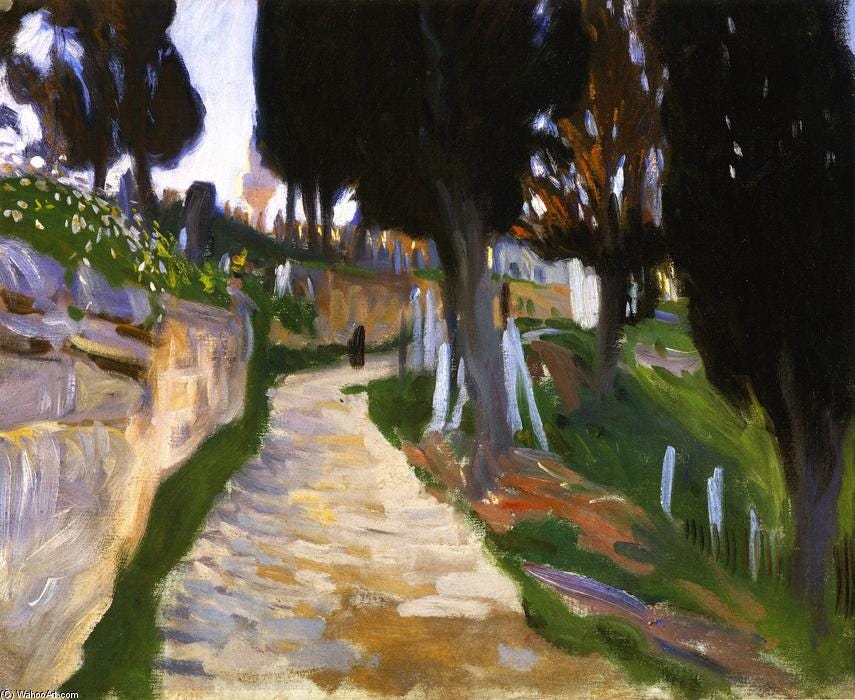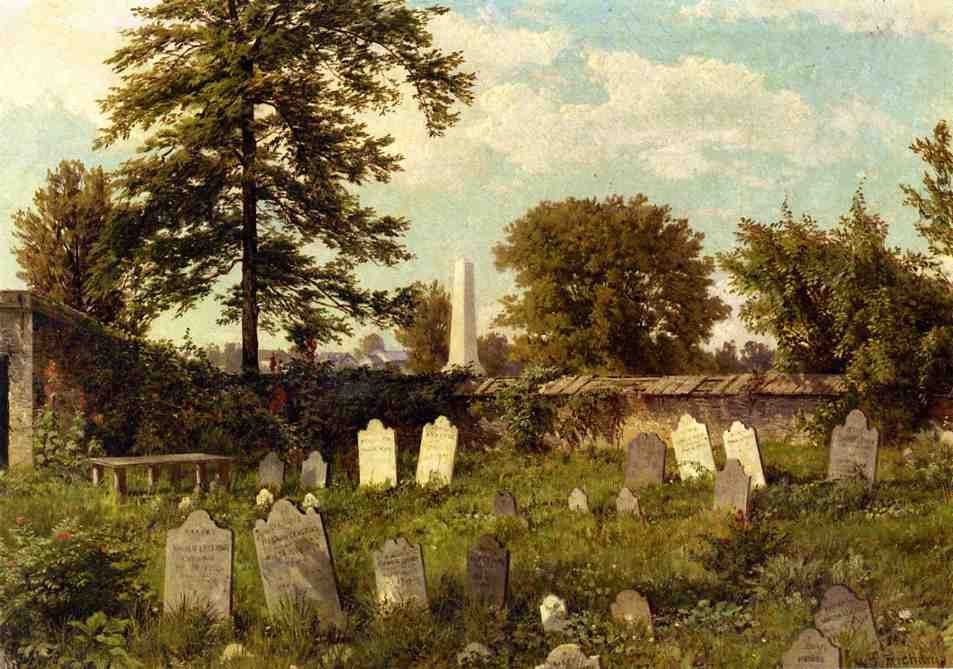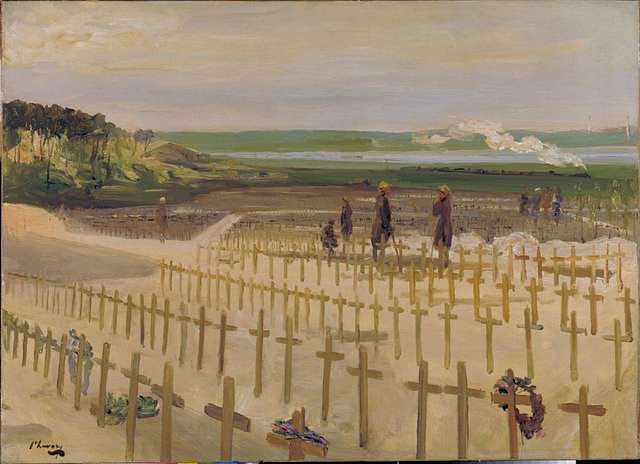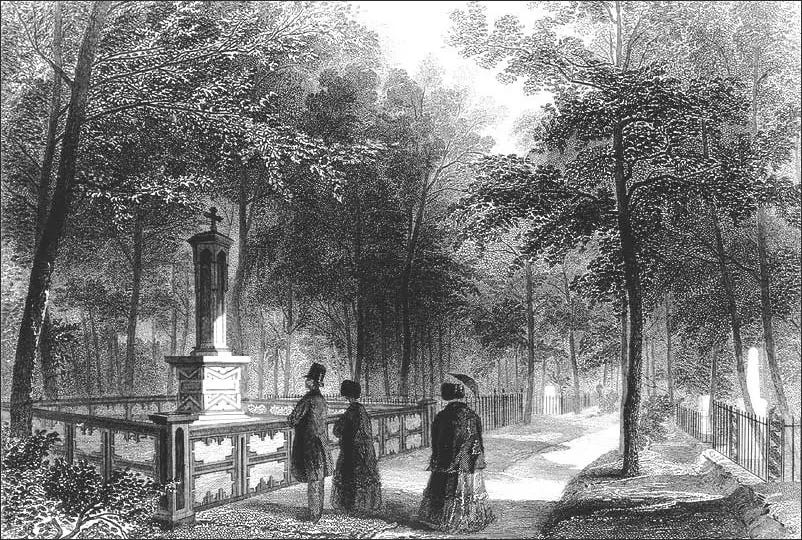South Carolinians have a special relationship with churchyards and cemeteries. It isn’t unique, especially among those for whom history seems to live and breathe all around them, but for us, it is special.
Cemetery, Constantinople, John Singer Sargent, 1891. Artsdot.
As a boy, I traveled with my great uncle and aunt to a patch of woods off a dirt road near Beech Island, South Carolina. Beech Island was a small community that existed, like many, in a bygone era before railroads, interstate highways and commerce became the common denominator of where one chose to put down roots.
That day, we’d come to reestablish order in the place where our ancestors lay using bush-hooks, loppers, and rakes. I was a child, unenthusiastic about the work ahead, but motivated by the promise of Coca-Cola and nabs…solid gold for a boy of seven years. It wasn’t until many years later that I began to understand that task’s importance. By honoring our ancestors we reminded ourselves to live in a manner worthy of our own descendants’ admiration and respect.
Leverington Cemetery, William Trost Richards, 1861. Oceans Bridge.
My in-laws recently visited the grave of 2Lt. Alwin C. Burns Jr., my father-in-law’s uncle, at the Netherlands American Cemetery in Margraten, Netherlands. My wife commented, when looking at their pictures, that remembering his sacrifice helps her appreciate the liberty all Americans enjoy. Her words stirred my own mind and consciousness. What am I doing daily to honor Uncle Alwin, and the hundreds of thousands of other men and women who gave their country their “last full measure of devotion”?
Thinking of their sacrifices reminds me of a soldier from our own war for self-determination. Colonel Mihaly Kovats was a Hungarian-born American hero who died for the cause of liberty at the siege of Charleston, South Carolina in May of 1779. In a letter written to Ambassador Benjamin Franklin, Kovats wrote the valediction for which he is most remembered: “most faithful unto death.” If Americans invested more in remembering those whose sacrifices built and preserve our nation, perhaps we could impart our world with a grateful, rather than contemptuous, spirit.
The Cemetery, Etaples, Sir John Lavery, Royal Army, 1919. Google Art Project.
Too often, we fill our minds with cable news and political spats. It’s like living among disembodied modern art, rather than those ennobling works of the great masters. Minds filled with rubbish are difficult to fill with a sense of national respect. Instead of wasting our energy, we should find our physical and intellectual forbearers, study their sacrifices, and understand their contributions. America has endured for 247 years as a diverse people not because she has used every opportunity to practice oppression, but because her diverse citizenry cherishes and reveres a united set of principles.
American inclusivity originates in our commitment to the belief that that every citizen is “endowed by the Creator with certain inalienable rights.” Every American is “created equal” and we are fortunate to live in a time and a place where that equality is more readily available and attainable than in any other time or place in history. Diversity of opinion, background, and skillset can build, but diversity of truth, reality, and intersectional oppression narratives destroy.
We should consider what headstones, monuments, and memorials symbolize and allow the heart-warming and even heart-wrenching emotions wash over our spirit. Some memorials make us uneasy, but that uneasiness can galvanize us to stand on our ancestors’ shoulders, to see further than they, and continue building a country that increasingly realizes a purer version of their original intent. They hoped for an American people, governed by the rule of law, who seek every citizens’ well-being so that generations to come may enjoy more liberty, prosperity and beauty than those that went before.
Mount Auburn Illustrated in Finely Drawn Line Engravings, James Smillie, 1847. Mount Auburn Cemetery.
If this resonates with you, if you want to preserve and promote truth and goodness and you think a tall shot of gratitude is long overdue, please join me in saying a prayer of thankfulness for those like 2Lt. Burns and Col. Kovats who laid down their lives so that we might live in the United States of America.








